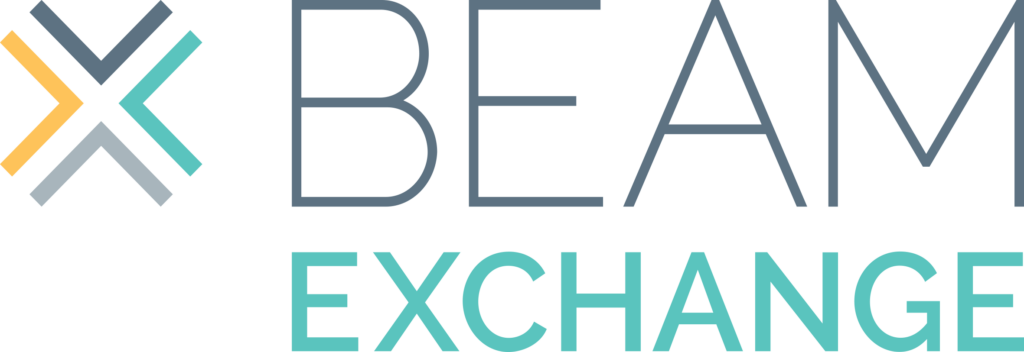Market Systems Development (MSD) reduces poverty by enhancing the ways that poor women and men interact with the markets that provide them with jobs, income and access to services. This page gives access to key documents on the MSD approach.
The BEAM Exchange website hosts a wealth of resources about the MSD approach, including a 4-minute introductory video. BEAM Exchange is supervised by the DCED’s MSD Working Group.
Markets and the private sector provide a direct means for people to participate in economic activity – to find jobs, earn income and access services. All too often, people living in poverty are excluded or disadvantaged by the way that markets operate. MSD is a coherent approach to understanding and intervening in markets so that they perform more beneficially and sustainably for the poor. It works by identifying the root causes of weak or exclusionary performance in particular market systems.
The MSD approach is adaptive: reflecting the dynamic and complex nature of markets. Good monitoring is therefore essential to its implementation. Learn more about how the DCED Standard helps achieve that.
See the BEAM Programme Index for programmes using the MSD approach. Programme evaluations can be found within the profiles in the Index; alternatively, go to the BEAM Evidence Map for a wider list of resources that describe the impact and effectiveness of programmes that use the market systems approach
The synthesis report on the 2024 DCED Global Seminar on Systemic approaches for sustainable growth, employment and resilience also gives valuable insights into the state-of-the-art, challenges and opportunities in systems development.
Overview MSD documents
- Market Systems Development for Employment Landscape Assessment, ILO and others, 2024
- Market Systems Development Overview, USAID 2024
- A Systemic Approach to Creating More and Better Jobs, ILO 2019
- Market systems and job quality: what do we know and what can we do about it? ILO, 2017
- Market Approaches that Work for Development, Urs Heierli, 2008
- A synthesis of the M4P approach, Springfield Centre, 2008
Comparison with other PSD approaches
- Towards Transformational Impact: Synergies of private sector engagement and market systems development, USAID, 2021
- Making Markets Work for Poor – Comparing M4P and Sustainable Livelihood Approach frameworks, SDC, 2008
- Matching Grant Schemes and Systemic Approaches for PSD: Differences and Complementarities, DCED, 2015

General guidelines and advice
- Starting strong: getting inception right in projects using the MSD approach, ILO, 2024
- A rough guide to the MSD approach for youth employment in sub-Saharan Africa, BEAM Exchange, 2023
- Managing MSD projects: Internal guidance paper for SDC head office and cooperation office staff, SDC 2019
- Operational Guidance Note: Market Systems Development, DFAT 2017
- Shaping Inclusive Markets. How Funders and Intermediaries can Help Markets Move toward Greater Economic Inclusion, FSG, 2017.
- The Operational Guide for the M4P Approach, The Springfield Centre, 2015
- Guiding principles for donor intervention in business development services, DCED 2001
MSD in fragile contexts
- Going beyond the last mile: Adaptation to increase refugee adoption. Sharpe Programme, 2025
- MSD approaches to programming in fragile and conflict-affected situations. Learning brief for DCED, BEAM Exchange 2024.
- Designing and implementing market-led interventions in forced displacement settings. A brief guide, ILO, 2024
- Market Systems Resilience. Learning brief, USAID/ IRC/ DevLearn/ MiC, 2024
- Adapting a market systems approach to crisis in Sudan, Mercy Corps, 2024
- Economic integration – Can it work better for host and refugee communities? SHARPE, 2023
- Partner Selection: Selecting winning partners for women’s economic empowerment, WIN Mozambique (Technoserve), 2023
- Forming partnerships with the Private Sector: A summary of lessons learned by Market Systems Development Practitioners, Hans Posthumus for SDC, 2019
- How can companies and market systems programmes engage effectively? The Practitioner Hub for Inclusive Business, 2017
- Forming partnerships with the Private Sector: A summary of lessons learned by Market Systems Development Practitioners, Hans Posthumus for SDC, 2019
- How can companies and market systems programmes engage effectively? The Practitioner Hub for Inclusive Business, 2017
- Greening the MSD approach for agricultural programmes, BEAM Exchange, 2024
- A climate-smart approach to delivering Propcom’s market systems interventions, Propcom, 2024
- Building climate resilience in Northeast Nigeria through the adoption of climate adapted seeds. Using a market systems approach to build climate resilience in a conflict-affected area, Feed the Future, 2024
- Circular economy and systems thinking, Canopy Lab, 2024
- Nature conservation and systems thinking, Canopy Lab, 2024
- Agroecology and sytems thinking, Canopy Lab, 2024
- Carbon finance and market systems development, Canopy Lab, 2024
It is widely debated whether social and basic services should be free at the point of access, or whether private low-cost services can be a solution where the public system does not work effectively. In the health sector, for example, the first point of contact for low-income groups is often with commercial health care providers, in one form or another. Some therefore suggest to upgrade existing service provision, until it is possible to provide free universal coverage.
Resources in this section explore these debates and provide practical advice for developing inclusive social and basic service markets that work for the poor.
MSD in education programmes

- Economy and education information package, SDC, 2024
- A rough guide to the MSD approach for youth employment in sub-Saharan Africa, BEAM Exchange, 2023
- Do Private Schools Improve Learning Outcomes? Evidence from Within-Household Comparisons in East Africa and South Asia. Comparative Education Review, 2021
- Private non-state sector engagement in the provision of educational services at the primary and secondary levels in South Asia, World Bank, 2014
MSD in health care programmes

- Lessons for future M4P and health programmes, PSP4H, 2016
- Knowledge Portal on Private Sector for Health, PSP4H programme
- Engaging with Health Markets in Low and Middle Income Countries, DFID, 2014
- Primary Health Care at the Base of the Pyramid. RTT’s Unjani Clinic Model, B4D Pathfinder, 2012
- Strengthening Health Outcomes through the Private Sector project website, USAID
MSD in water & sanitation programmes

- Engaging the informal private water sector to respond to water supply needs in urban areas, CRS, 2022
- The Journey of Changing Water Services Delivery in Kenya, KMT 2019
- Summary of best practices of iDE’s sanitation marketing approach, iDE 2018
- A Market Led, Evidence Based, Approach to Rural Sanitation in India, Monitor Inclusive Markets, 2013
MSD, WEE and the care economy

- Responding to challenges in adapting MSD approaches to the care economy, blog by Holly Lard Krueger, BEAM Exchange, 2022
- Care matters. Taking action on unpaid care and domestic work in ASEAN, Oxfam, 2020
- Understanding unpaid care work to empower women in market systems approaches, BEAM Exchange, 2016

- BEAM Evidence Review 2024
- SDC: Independent Evaluation of SDC’s Performance in Market System Development in Agriculture 2013-2019, 2021 Also Factsheet one-pager
- DFAT: Synthesis review of DFAT-funded Market Systems Development Initiatives, 2019.
- DFAT: Beyond value chains: Emerging lessons from MSD approaches in Australia’s aid programme, 2018.
- Sida: Evaluation of the market systems development approach. Lessons for expanded use and adaptive management at Sida, 2018.
- USAID: Leveraging Economic Opportunities (LEO) Final performance report, 2016.
- SDC: External Review of SDC ́s Program on Rural Market Development in the South Caucasus 2008 – 2012, 2012.
Photo credits: Katalyst; freedigitalphotos.net; Mirko Eggert/ flickr.com; Paul Prescott/ 123rf Stock Photo; Joseph King/ flickr.com; Lena Helfinger/ pixabay
